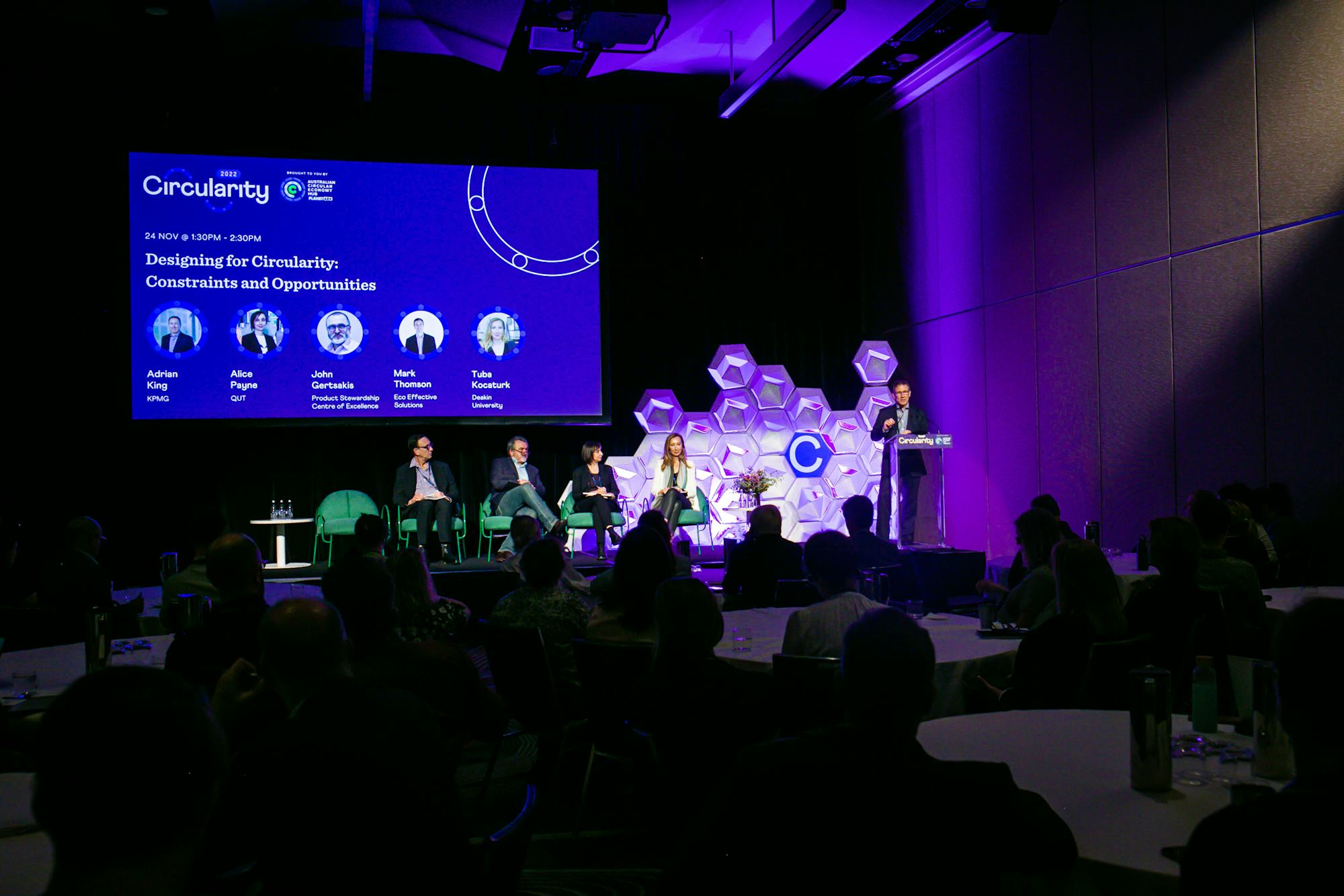KPMG Australia
KPMG Australia is one of the world's largest professional services and global accounting firms. The firm’s Circular Economy Advisory offers a full suite of services and solutions enabling organisations to take advantage of the opportunity presented by Australia’s transition to circularity.
With services ranging from the development of circular strategies to advancing circular business models to measuring circularity to connecting Australia’s circular ecosystem, KPMG is also striving to be a leader in that transition.
The future of KPMG and our economy is circular
Circularity is fast becoming a non-negotiable in a world where resources are finite, and the climate emergency is pressing. The world has changed towards responsible business, and the circular economy is good for both the environment and the economy.
In a linear model, the impact of waste caused by business processes and product disposal – including greenhouse gas emissions and waste plastics – grows as the economy grows. The circular economy offers different solutions, for the planet and business.
By 2047-48, the benefit of a circular economy in only three industry sectors will amount to a present value of $210 billion in GDP and an additional 17,000 full-time equivalent (FTE) jobs for Australia as estimated by KPMG modelling commissioned by the CSIRO.
Exploring the opportunities of the circular economy
KPMG’s Circular Economy team helps organisations take advantage of this opportunity. The firm offers a full suite of services and technology solutions enabling businesses to turn the circular economy from theory into practice.
KPMG helps clients identify circular opportunities, design and implement circular strategies, develop circular procurement processes, track and trace material provenance, and conduct economic assessments including life cycle assessments (LCAs). Additional services include policy and regulatory advisory, circularity measurement based on the Circular Transition Indicators (CTI) framework, and resource management and recovery.
Circular Advantage, a KPMG developed program, focuses on executive education – that guides corporate leaders through the development of circular economy roadmaps and value chain collaboration.
Driving circularity in Australia
The reality of a circular economy is fast gaining momentum. Once an idea confined to the halls of university institutions, the circular economy is now a hot topic of discussion across business, government and the community.
KPMG Australia has a strong history of investing in the circular economy, and the firm is proud to be a Founding Member of the Australian Circular Economy (ACE) Hub.
While the circular economy in Australia is accelerating, progress is only just beginning. KPMG member firms in Europe have shown KPMG Australia that embracing circularity presents a significant opportunity for both commercial and environmental impact.
The Federal Government has set a target to achieve a circular economy by 2030. As a Founding Member, KPMG is eager to collaborate with the ACE Hub to drive circular solutions and help guide Australia’s transition towards a circular economy.

Bringing ESG to life
KPMG is a professional services firm with a global reach and deep expertise in ESG advisory and assurance.
KPMG Australia’s sustainability services are both holistic and practical, helping clients drive sustainable innovation across their businesses. The firm has profound experience in climate change, decarbonisation, ethical supply chain, circular economy, diversity, equity and inclusion, ESG reporting and measurement, and governance.
KPMG can create a blueprint for an organisation’s ESG journey: a blueprint that develops and simplifies a strategy, guides its full implementation, and enables the management and evaluation of environmental performance and social impact.
This ESG journey is critical as companies come under increasing pressure to protect and create corporate value, and to communicate the value they offer society. These non-financial issues are bringing new risks and opportunities with significant implications for corporate value creation.
Wherever an organisation is on its ESG journey, KPMG can help to realise its circular ambitions to capitalise on the economic opportunity as well as improve environmental resilience and social impact. For further information click here.